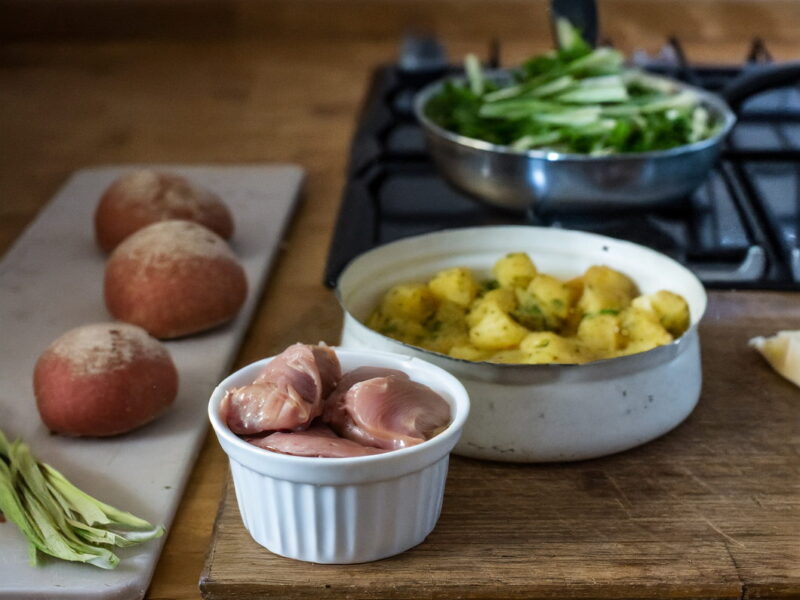Introduction
Home cooking is a skill that everyone should have in their arsenal. Not only does it allow you to create delicious and healthy meals for yourself and your loved ones, but it also gives you a sense of accomplishment and satisfaction. However, for beginners, the world of home cooking can seem daunting and overwhelming. That’s where Home Cooking Mastery comes in. This comprehensive guide is designed to help beginners master essential cooking techniques and build a strong foundation in the kitchen. With step-by-step instructions, tips, and tricks, Home Cooking Mastery will empower you to become a confident and skilled home cook in no time. So let’s get started on your journey to becoming a master of home cooking!
5 Essential Techniques for Mastering Home Cooking Mastery
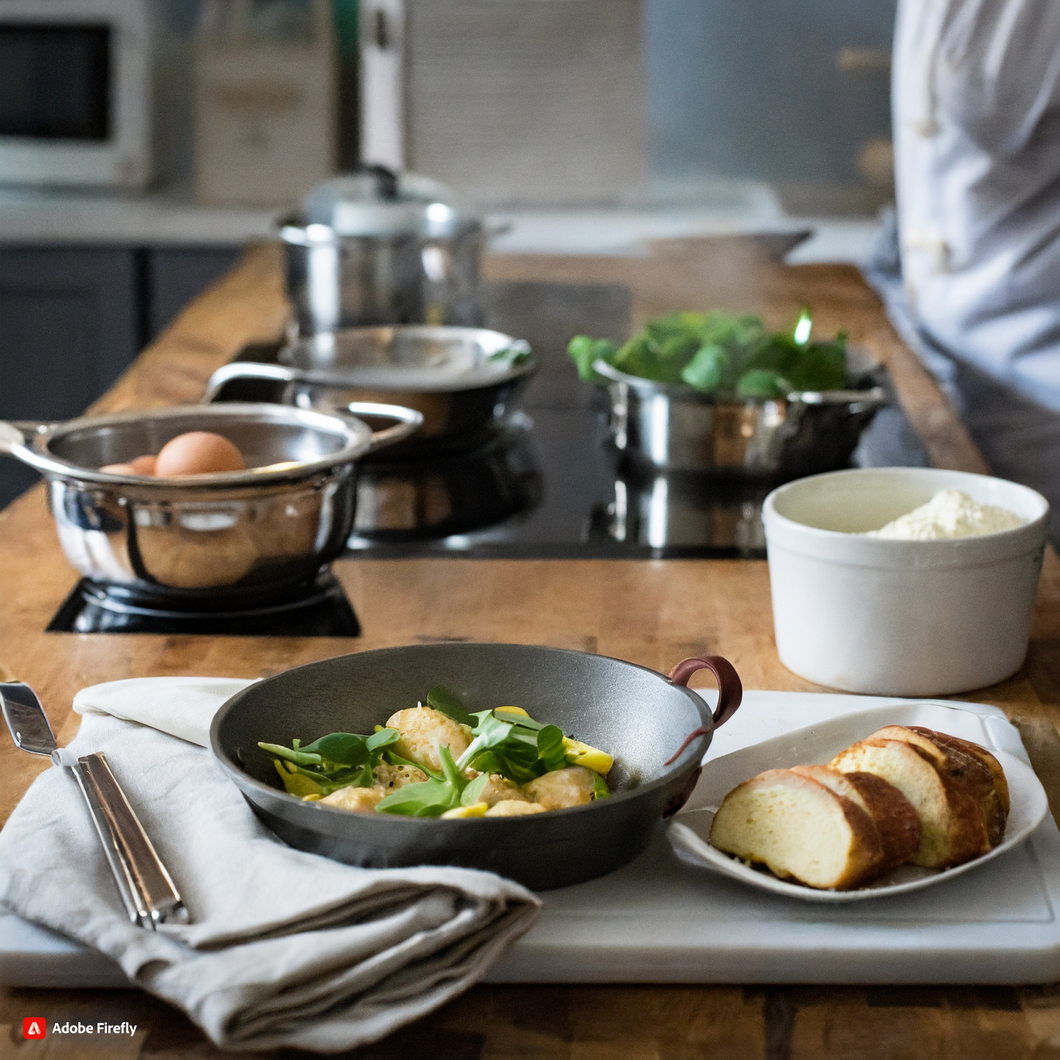
Are you tired of ordering takeout or eating frozen meals every night? Do you want to impress your friends and family with your cooking skills? Look no further, because in this article, we will be discussing the 5 essential techniques for mastering Home Cooking Mastery.
1. Knife Skills
The first and most important technique for any home cook is mastering knife skills. A sharp and well-maintained knife is your best friend in the kitchen. It not only makes your prep work faster and more efficient, but it also ensures that your food is cooked evenly. Start by investing in a good quality chef’s knife and learn the proper way to hold and use it. Practice different cutting techniques such as dicing, mincing, and julienning. With time and practice, you will become more confident and comfortable with your knife skills.
2. Seasoning
Seasoning is the key to elevating any dish. It is important to understand the different types of seasonings and how to use them. Salt and pepper are the most basic seasonings, but don’t be afraid to experiment with herbs, spices, and other flavorings. Remember to season your food at every stage of cooking, not just at the end. This will ensure that your dish has layers of flavor and is well-balanced.
3. Heat Control
Controlling heat is crucial in cooking. Different cooking methods require different levels of heat, and it is important to understand how to adjust the heat accordingly. For example, searing requires high heat, while simmering requires low heat. Invest in a good quality thermometer to help you monitor the temperature of your food. Also, make sure to preheat your pan before adding any ingredients. This will prevent your food from sticking and ensure even cooking.
4. Timing
Timing is everything in cooking. Knowing when to add ingredients, when to flip or stir, and when to take your food off the heat is essential for a successful dish. It is important to read through the entire recipe before starting and have all your ingredients prepped and ready to go. This will prevent any last-minute scrambling and ensure that your food is cooked to perfection.
5. Tasting and Adjusting
The final and most important technique for mastering home cooking is tasting and adjusting. Don’t be afraid to taste your food as you cook and make adjustments accordingly. If your dish is lacking flavor, add more seasoning. If it is too salty, add a squeeze of lemon juice or a pinch of sugar. Tasting and adjusting will help you develop your palate and create dishes that are tailored to your taste.
In conclusion, mastering these 5 essential techniques will take your home cooking to the next level. Remember to practice, be patient with yourself, and have fun in the kitchen. With time and dedication, you will become a master home cook and impress your loved ones with delicious and flavorful meals. Happy cooking!
The Importance of Knife Skills in Home Cooking Mastery
Are you a beginner in the world of home cooking? Do you often find yourself struggling with basic techniques and feeling overwhelmed in the kitchen? Don’t worry, you’re not alone. Many people feel intimidated by the idea of cooking at home, especially when it comes to using knives. But fear not, mastering essential knife skills is a crucial step in becoming a confident and efficient home cook.
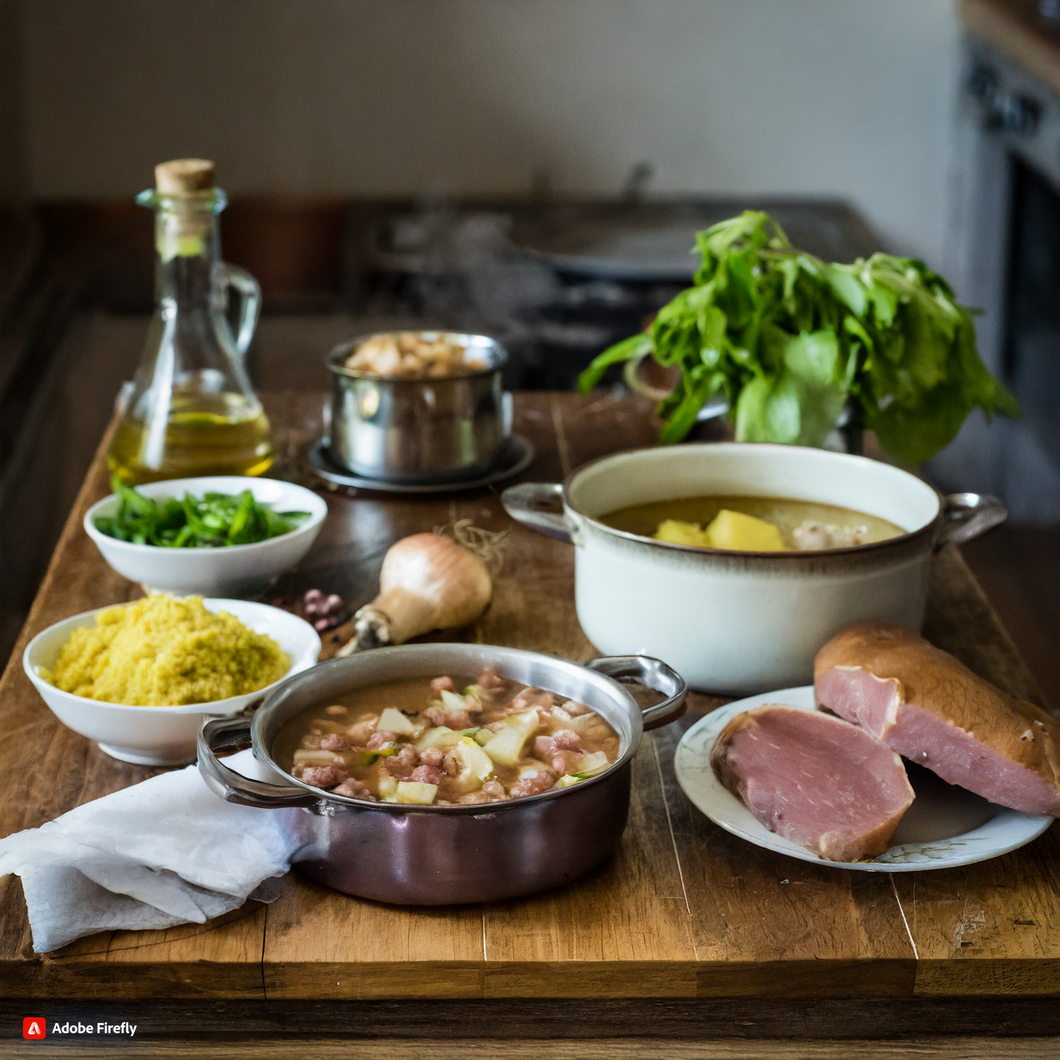
First and foremost, let’s address the elephant in the room – the fear of using knives. It’s completely understandable to feel anxious about handling sharp objects, but with proper techniques and practice, you’ll soon realize that there’s nothing to be afraid of. In fact, using knives can be quite therapeutic and satisfying once you get the hang of it.
So why are knife skills so important in Home Cooking Mastery? Well, for starters, knives are one of the most essential tools in the kitchen. From chopping vegetables to slicing meat, knives are used in almost every step of the cooking process. And having good knife skills not only makes your cooking more efficient but also ensures that your food is evenly cooked and looks visually appealing.
One of the key benefits of mastering knife skills is speed. Have you ever watched a professional chef chop vegetables at lightning speed? While it may seem like a daunting task, with practice, you too can achieve that level of speed and precision. This is especially useful when you’re short on time and need to get dinner on the table quickly. Plus, the more efficient you are with your knife skills, the less time you’ll spend prepping and more time enjoying your delicious meal.
Another important aspect of knife skills is safety. As mentioned earlier, the fear of using knives is common among beginners. But with proper techniques, you can minimize the risk of accidents and injuries in the kitchen. Always make sure to use a sharp knife, as dull knives are more likely to slip and cause accidents. And remember to always keep your fingers curled under and away from the blade while cutting.
Now, let’s talk about the different types of knives and their uses. The most commonly used knife in the kitchen is the chef’s knife. This versatile knife is perfect for chopping, slicing, and dicing a variety of ingredients. Other essential knives include a paring knife for smaller tasks, a serrated knife for cutting bread and tomatoes, and a boning knife for deboning meat and fish. It’s important to have a good set of knives in your kitchen and to know which knife to use for different tasks.
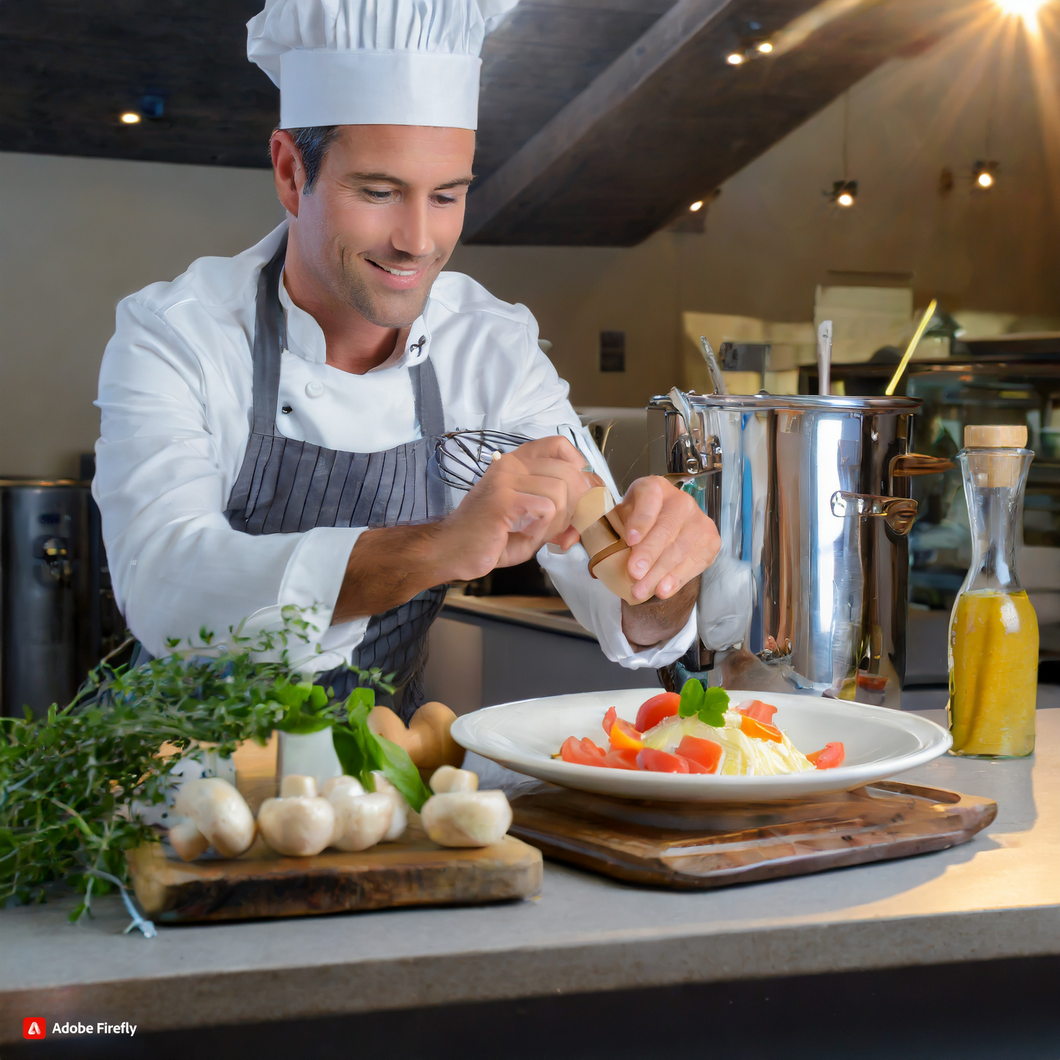
Aside from the type of knife, the grip and cutting technique also play a significant role in mastering knife skills. The most common grip is the “pinch grip,” where you hold the knife between your thumb and index finger, with the rest of your fingers wrapped around the handle. This grip gives you more control and stability while cutting. As for cutting techniques, the two most commonly used are the “rocking” and “chopping” methods. The rocking method is used for chopping herbs and vegetables, while the chopping method is used for larger and tougher ingredients.
Lastly, practice makes perfect. Don’t be discouraged if you don’t get it right the first time. It takes time and practice to master knife skills, but the more you do it, the more comfortable and confident you’ll become. Start with simple tasks like chopping onions or carrots and gradually move on to more challenging ingredients. And don’t forget to always keep your knives sharp and well-maintained for optimal performance.
In conclusion, mastering essential knife skills is a crucial step in becoming a confident and efficient home cook. It not only improves your speed and efficiency in the kitchen but also ensures safety and visually appealing dishes. So don’t be afraid to pick up that knife and start practicing. With time and patience, you’ll soon be a pro in the kitchen. Happy cooking!
From Basic to Gourmet: Elevating Your Home Cooking Mastery with Flavor Profiles
Are you tired of eating the same bland meals every day? Do you want to impress your family and friends with your cooking skills? Look no further, because in this article, we will be discussing how to elevate your Home Cooking Mastery with flavor profiles.
As a beginner in the kitchen, it can be overwhelming to try and master all the different cooking techniques and flavor combinations. But fear not, with a little bit of knowledge and practice, you can take your home cooking to the next level.
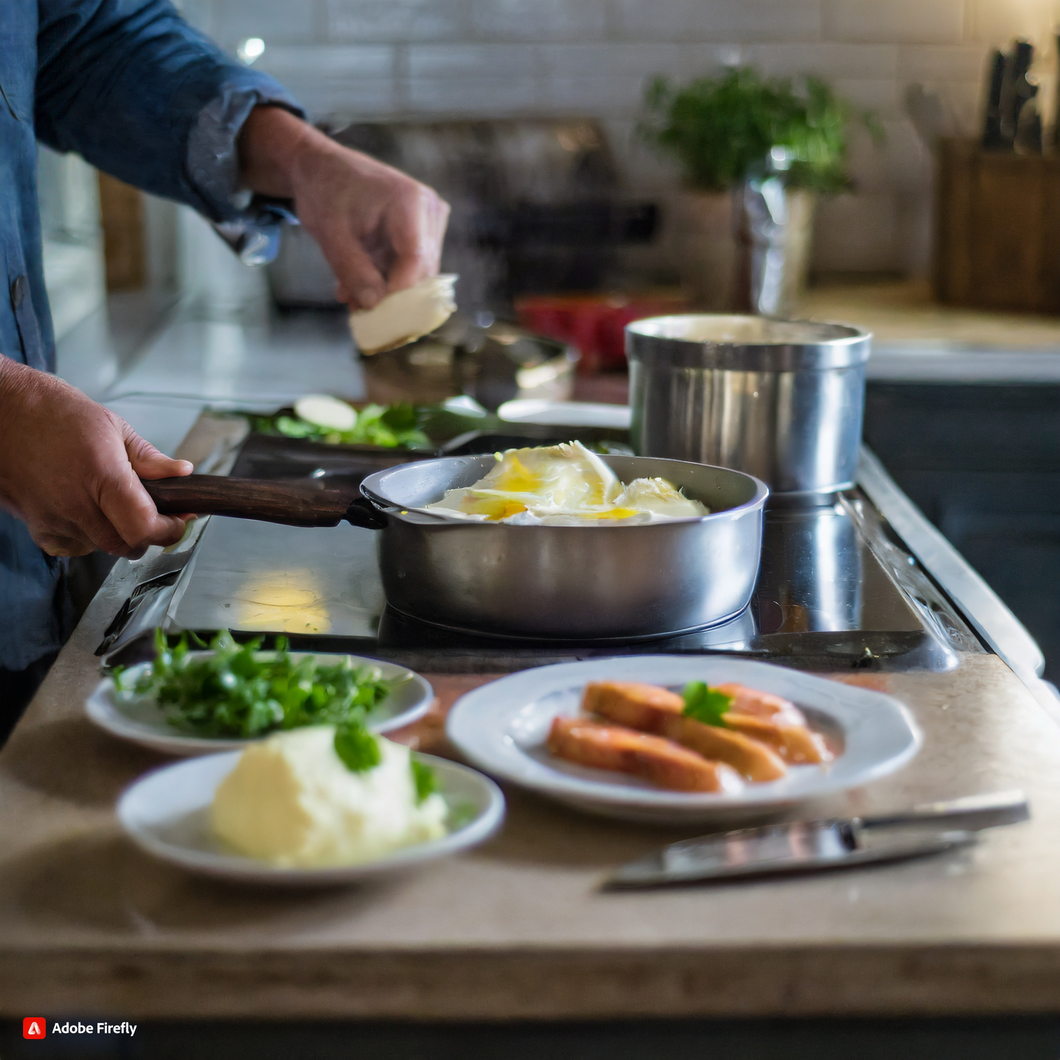
First and foremost, let’s talk about flavor profiles. A flavor profile is a combination of different flavors that work together to create a delicious and well-balanced dish. It’s like a puzzle, where each flavor is a piece that fits perfectly with the others to create a masterpiece.
The key to mastering flavor profiles is understanding the five basic tastes: sweet, sour, salty, bitter, and umami. These tastes can be found in various ingredients and can be used to create a wide range of flavor profiles.
Let’s start with sweet. This taste is often associated with desserts, but it can also be used in savory dishes to balance out other flavors. Some common ingredients that add sweetness to a dish are sugar, honey, and fruits like apples and mangoes.
Next, we have sour. This taste adds a tangy and acidic element to a dish. Lemon juice, vinegar, and yogurt are some examples of ingredients that can add a sour flavor to your dishes.
Moving on to salty, this taste is often used to enhance the other flavors in a dish. Salt is the most common ingredient used to add saltiness, but you can also use soy sauce, fish sauce, or even anchovies to achieve a salty flavor.
Bitter is a taste that is often overlooked, but it can add depth and complexity to a dish. Ingredients like coffee, dark chocolate, and bitter greens like kale and arugula can add a bitter flavor to your dishes. Read easy Healthy Lunch for Weight Loss.
Lastly, we have umami, which is a savory and meaty taste. It can be found in ingredients like mushrooms, soy sauce, and Parmesan cheese. Umami adds a rich and satisfying flavor to dishes and can be used to balance out other tastes.
Now that we have a basic understanding of the five tastes, let’s talk about how to use them to create flavor profiles. The key is to balance out the different tastes in a dish. For example, if you’re making a tomato-based pasta sauce, you can add a pinch of sugar to balance out the acidity of the tomatoes. Or if you’re making a stir-fry, you can add a splash of soy sauce to add a savory umami flavor.
Experimenting with different flavor profiles is the best way to learn and improve your cooking skills. Don’t be afraid to try new combinations and trust your taste buds. You can also get inspiration from different cuisines and flavor profiles used in their dishes.
Another essential technique for elevating your Home Cooking Mastery is using herbs and spices. These ingredients not only add flavor but also add depth and complexity to dishes. Some common herbs and spices used in cooking are basil, oregano, cumin, and paprika. Don’t be afraid to use them in your dishes, but remember to use them in moderation as they can easily overpower other flavors.
In addition to herbs and spices, using different cooking methods can also enhance the flavor of your dishes. For example, roasting vegetables brings out their natural sweetness, while grilling adds a smoky flavor. Experiment with different cooking methods to see which ones work best for different ingredients. Read Bread Recipes.
In conclusion, mastering flavor profiles and using herbs, spices, and different cooking methods are essential techniques for elevating your Home Cooking Mastery. Don’t be afraid to experiment and trust your taste buds. With practice and a little bit of knowledge, you’ll be able to create delicious and well-balanced dishes that will impress your family and friends. Happy cooking!
Q&A – Home Cooking Mastery
Q: What is Home Cooking Mastery?
A: Home Cooking Mastery is the ability to confidently and skillfully prepare a variety of dishes and meals at home using essential cooking techniques.
Q: Who can benefit from mastering home cooking?
A: Anyone who wants to improve their cooking skills and create delicious meals at home can benefit from mastering home cooking.
Q: What are some essential techniques for beginners to master in home cooking?
A: Some essential techniques for beginners to master in home cooking include knife skills, basic cooking methods (such as sautéing, roasting, and boiling), and understanding flavor profiles and seasoning.
Conclusion for Home Cooking Mastery
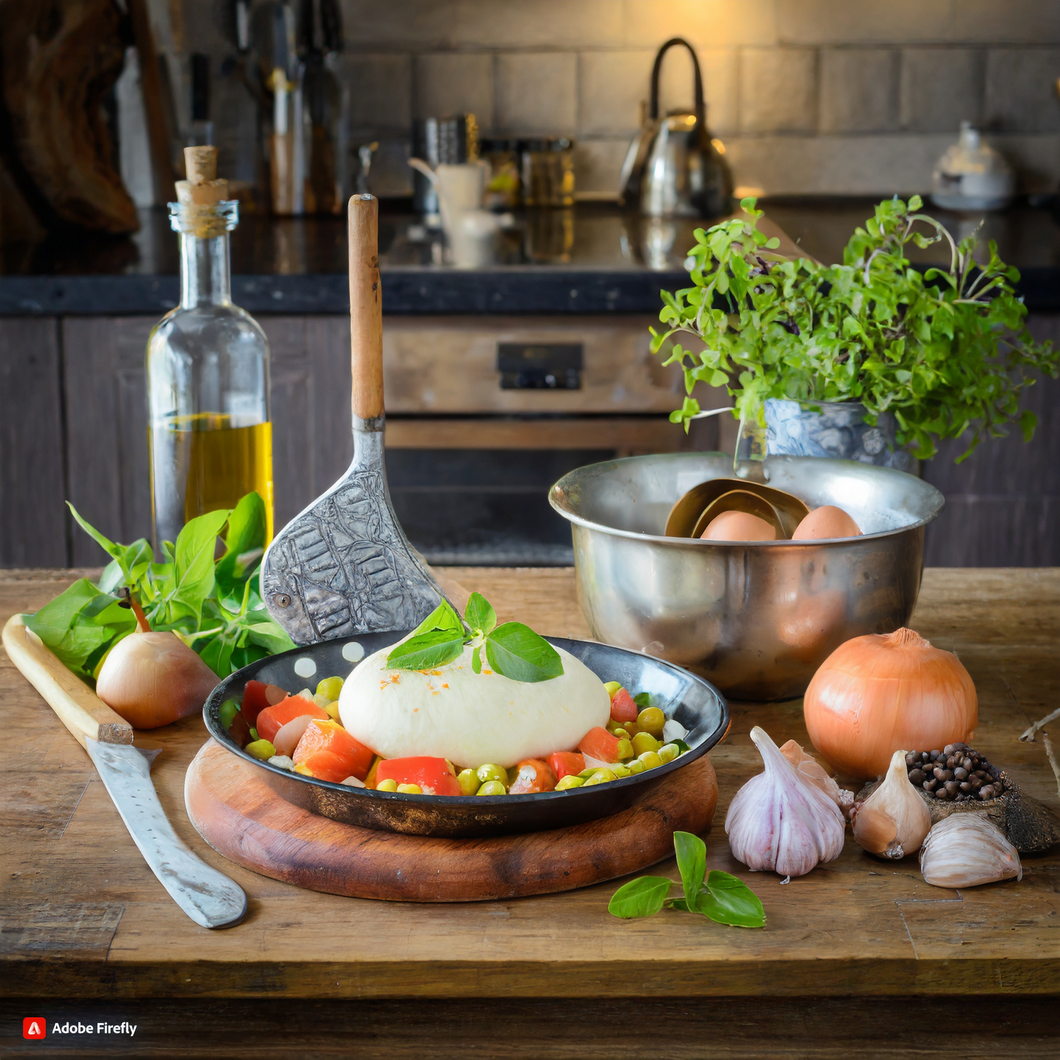
In conclusion, Home Cooking Mastery is a valuable resource for beginners looking to improve their cooking skills. The book covers essential techniques and provides step-by-step instructions, making it easy for anyone to follow along and master the basics of cooking. With this knowledge, beginners can gain confidence in the kitchen and create delicious meals at home. Whether you are a novice cook or looking to expand your culinary skills, Home Cooking Mastery is a must-have guide for mastering essential techniques.
Please follow us on linkedin. You can learn all best canadian food recipes you can check our Culinary 1TouchFood Youtube and Telegram 1TouchFood page. Don’t forget Fighting Obesity Magazine and Radio Cooking.

